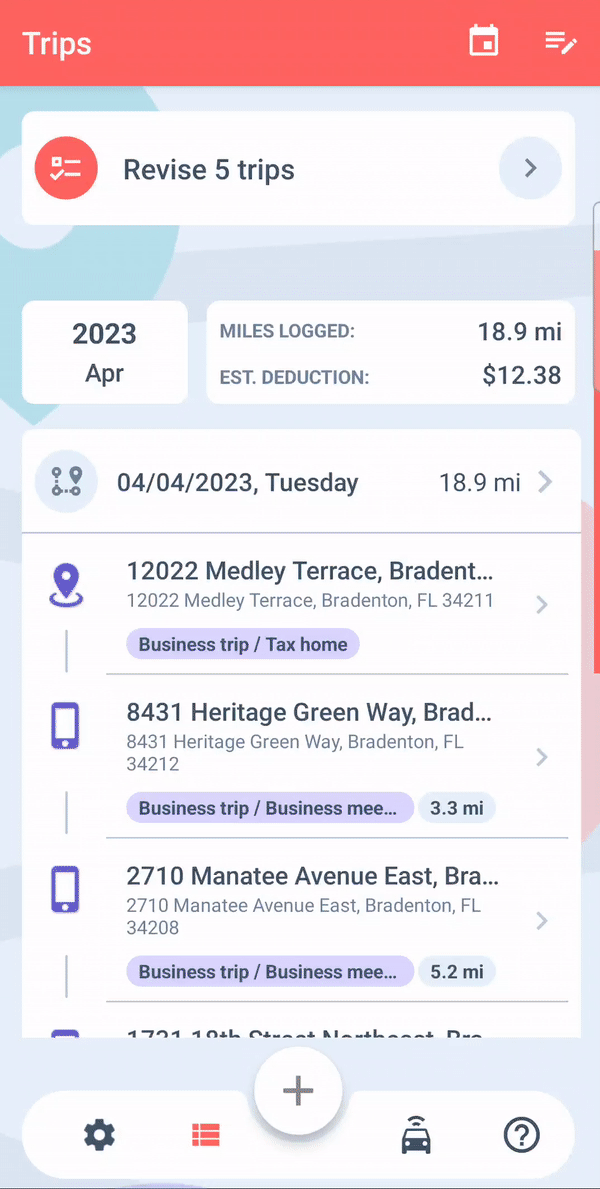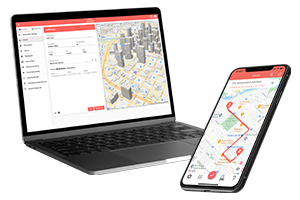December 1, 2023
In today’s fast-paced world, where every penny and minute counts, understanding the importance of tracking your vehicle’s mileage is more crucial than ever. Whether you’re a small business owner, a freelancer, or someone who just wants to manage their vehicle expenses effectively, mileage tracking offers a myriad of benefits. This guide delves into why mileage tracking is essential and also answers frequently asked questions on the topic.

The Significance of Mileage Tracking
Tax Compliance: Accurate mileage logs are essential for tax deductions. The Internal Revenue Service (IRS) requires detailed records to substantiate claims made on your tax returns. Failing to provide this can lead to audits and penalties.
Expense Management: Regular tracking helps in budgeting and managing vehicle expenses. By monitoring your travel, you can identify trends and areas where you can cut costs.
Reimbursement Policies: Many employers and clients have specific policies for mileage reimbursement. Keeping an accurate log ensures you’re compensated fairly for business-related travel.
Self-Employed Benefits: For freelancers and independent contractors, mileage tracking is vital for claiming business expenses. It helps in differentiating between personal and business travel, which is crucial for self-employment taxes.
Mobile Apps: Utilizing mobile applications for tracking can simplify the process. Apps like MileageWise offer automatic tracking and easy reporting features.

Environmental Impact: Understanding your travel patterns can contribute to more eco-friendly driving habits. Reducing unnecessary trips can lower your carbon footprint.
Vehicle Maintenance: Regular monitoring aids in preventative maintenance. It alerts you to servicing needs, helping avoid costly repairs and extending the life of your vehicle.

Fuel Efficiency: By analyzing your driving patterns, you can adopt practices that enhance fuel economy. This not only saves money but also benefits the environment.
Insurance Premiums: Some insurance companies offer discounts based on mileage. Lower mileage can lead to lower insurance rates.
Audit Trail: In the event of an IRS audit, a comprehensive mileage log provides a clear audit trail, showcasing the legitimacy of your claims.
Business Planning: For businesses, mileage data can aid in strategic planning, such as optimizing travel routes for efficiency.
Client Billing: For those who bill clients based on travel, accurate mileage tracking ensures precise billing and maintains client trust.
Time Management: Understanding travel patterns can improve time management. Knowing how much time is spent on the road can help in planning your day more efficiently.
Charitable Deductions: If you drive for charitable activities, those miles can be deducted. Keeping a separate log for such activities is advisable.
Moving Expenses: For certain relocations, especially job-related, mileage can be deductible. Keeping a record is essential for claiming these on your taxes.
Lease Contracts: If you’re driving a leased vehicle, staying within the contracted mileage limits is crucial to avoid excess fees.
Professional Credibility: For professionals who bill for travel, maintaining accurate logs enhances professionalism and credibility.
Record Keeping: Good record-keeping practices, in general, are beneficial for personal and business financial health.
Financial Planning: For those who use vehicles heavily, such as in a delivery service or ride-sharing, mileage tracking is integral to financial planning.
Mileage Rates: Being aware of the current IRS mileage rates is important for accurate deductions and reimbursements.
Summary
In summary, tracking mileage, whether for personal or business purposes, can provide significant financial benefits, aid in tax compliance, and contribute to better vehicle management and budgeting.
Frequently Asked Questions
Q1: What is mileage tracking?
A1: Mileage tracking is the process of recording the distance traveled by a vehicle. It’s important for tax deductions, expense management, reimbursement, and monitoring vehicle usage.
Q2: Why should I track my mileage for tax purposes?
A2: Tracking mileage is crucial for claiming tax deductions on your tax return. The IRS requires detailed logs to substantiate these deductions and avoid penalties during audits.
Q3: Can I use mileage tracking for business expense deductions?
A3: Yes, self-employed individuals, freelancers, and business owners can use mileage tracking to separate personal and business travel, crucial for claiming business expenses on tax returns.
Q4: Are there any mobile apps that can help with mileage tracking?
A4: There are several mobile apps that offer automatic tracking and reporting features, simplifying the process of logging miles. You can get started with MileageWise for free, just sign up below.
Q5: How does mileage tracking contribute to environmental conservation?
A5: By monitoring travel patterns, you can reduce unnecessary trips, thereby lowering your carbon footprint and contributing to eco-friendly driving habits.
Q6: How does mileage tracking affect vehicle maintenance?
A6: Regular monitoring helps in scheduling preventative maintenance, avoiding costly repairs, and extending the life of your vehicle.
Q7: Can tracking mileage help in reducing insurance premiums?
A7: Some insurance companies offer discounts based on low mileage, so tracking your mileage can potentially lead to lower insurance rates.
Q8: What is the importance of an audit trail in mileage tracking?
A8: In case of an IRS audit, a comprehensive mileage log serves as an audit trail, proving the legitimacy of your mileage claims.
Q9: Is mileage tracking useful for client billing?
A9: Accurate mileage tracking ensures precise billing for travel-related client services, maintaining trust and professionalism.
Q10: Are there any tax deductions for driving for charitable activities?
A10: Yes, if you drive for charitable activities, those miles can be deductible. Keeping a separate log for such activities is important for claiming these deductions.
Q11: Is mileage tracking mandatory for all businesses?
A11: While not mandatory for all businesses, mileage tracking is highly recommended for those that require extensive vehicle use. It is particularly important for businesses seeking to claim vehicle-related tax deductions or reimbursements.
Q12: How accurate do my mileage logs need to be?
A12: Mileage logs should be as accurate as possible. The IRS requires detailed and accurate records for tax deductions. Inaccuracies can lead to denied deductions or penalties in the event of an audit.
Q13: Can I track mileage for multiple vehicles?
A13: Yes, you can track mileage for multiple vehicles. Whether using manual logs or mobile apps, ensure that you maintain separate records for each vehicle, especially if they’re used for different purposes.
Q14: What if I forget to log a trip?
A14: If you forget to log a trip, try to record it as soon as possible. While occasional lapses can happen, consistently accurate logs are crucial for reliability, especially for tax or reimbursement purposes.
If you’re just starting out and have several trip gaps in your 2023 records, you can use MileageWise’s Google Timeline Importer to recover past trips using your Google Maps records. More importantly, the software also turns those records into an actual IRS-Proof mileage log for you.
Q15: How long should I keep my mileage records?
A15: The IRS recommends keeping mileage logs and other tax records for at least three years from the date you file your income tax return. However, if your return includes a claim for credit or refund after you file, you should keep records for either three years from the date you filed your original return or two years from the date you paid the tax, whichever is later.
Download MileageWise’s automatic mileage tracker app from Google Play or the App Store & try it for free for 14 days. No credit card required!



